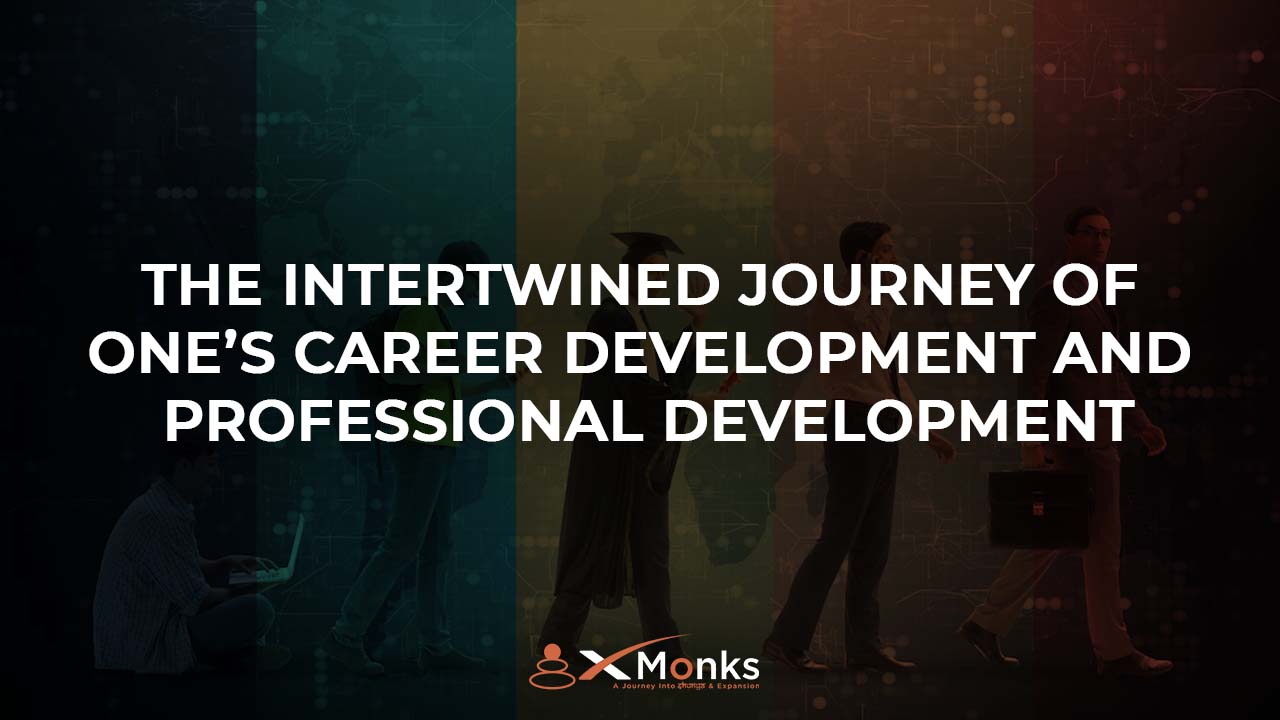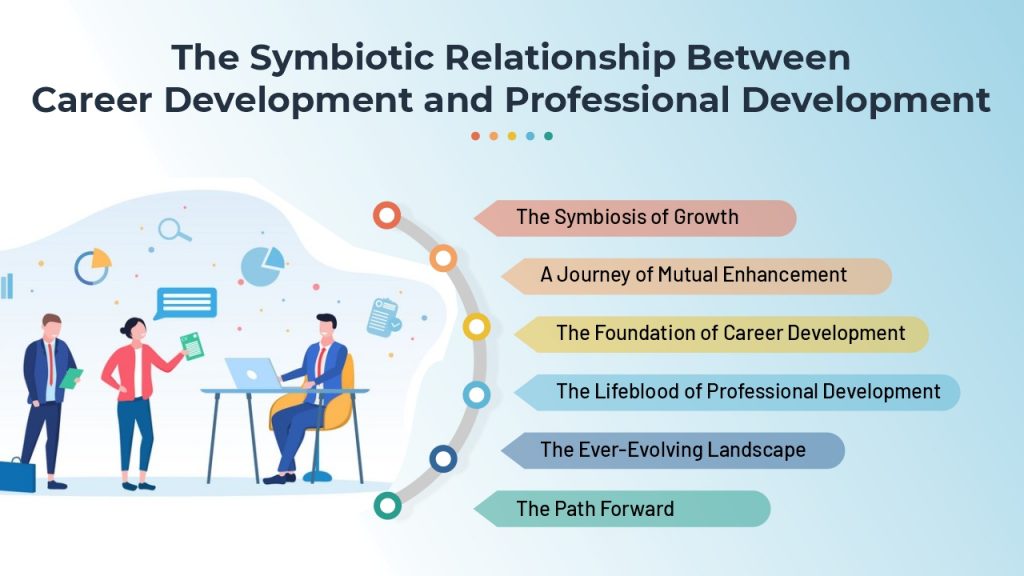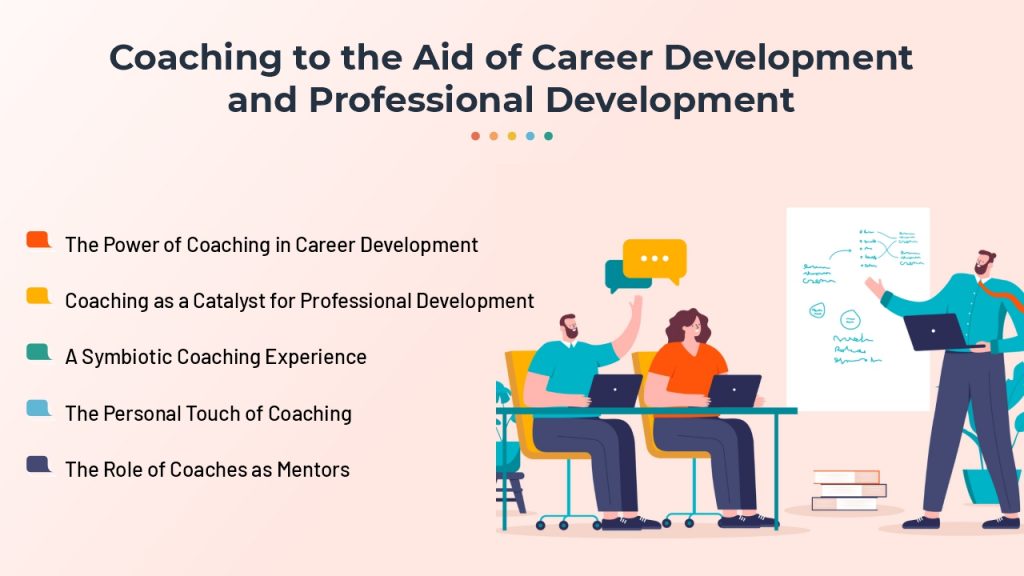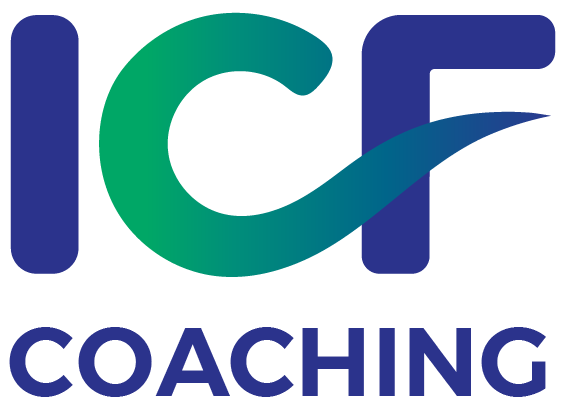Table of Contents
ToggleThe Intertwined Journey of One’s Career Development and Professional Development

The pursuit of success isn’t a straight line, and neither is the path to self-improvement. The terms “career development” and “professional development” often get tossed around, but what do they really mean? Are they the same? Do they follow one another in lockstep, or are they distinct branches of personal and professional growth?
In this guide, we’ll dive deep into these concepts, exploring their connection, importance, and how they play a key role in shaping the path of both individuals and the workforce.
What is Career Development?
At its core, career development is the lifelong process of managing your work experiences to achieve your personal and professional goals. It’s more than just climbing a corporate ladder—it involves the conscious evolution of your skills, abilities, and interests throughout your working life.
Career development can be broken down into stages, typically:
- Self-assessment – Identifying your interests, strengths, and values.
- Goal-setting – Pinpointing where you want to go professionally.
- Skill acquisition – Continuously learning to close gaps between where you are and where you want to be.
- Implementation – Putting your career plan into action.
Each of these stages requires introspection, feedback from mentors, and sometimes, a bit of luck. It’s a dynamic process that evolves as industries change, as your personal values shift, and as you acquire new skills.
What is Professional Development?
While career development focuses on the bigger picture of where you’re headed professionally, professional development is about continuously growing the skills and knowledge needed to remain competent and competitive in your field. This could mean taking a new certification course, attending workshops, or even mastering new technology.
Professional development isn’t a one-time thing—it’s ongoing. It’s about honing your expertise and staying ahead of industry trends. Think of it like sharpening the tools in your toolbox so that you’re always prepared for the next challenge or opportunity.
The Symbiotic Relationship Between Career Development and Professional Development
Career development and professional development are like two sides of the same coin. One fuels the other. As you grow your professional skills, your career naturally benefits. Similarly, as you progress in your career, you’ll find new areas where you need to further develop professionally. It’s a feedback loop, with both feeding into each other.
Take, for instance, someone aiming to become a manager. Their career development goal might be a promotion to management, but to get there, they’ll need to engage in professional development—learning leadership, communication, and management skills. Let’s dive a little deeper into the relationship between career development and professional development-
In the intricate dance of life, our careers often take centre stage, guiding us with aspirations, ambitions, and a hunger for growth. Alongside, though perhaps less obvious, professional development hums a steady tune, offering a quiet yet profound rhythm of continuous learning. Together, career and professional development move in harmony, feeding off each other’s energy and pushing us toward our fullest potential. Their relationship is one of beautiful interdependence—one cannot truly thrive without the other.

The Foundation of Career Development
At its core, career development is a journey—a quest for fulfilment, purpose, and achievement in the world of work. It encompasses the decisions we make, the goals we set, and the milestones we reach as we progress through life. We map out where we want to be, setting the sights high, often without realising that the path isn’t always linear. This progression is more like a winding river, where unexpected turns and rapids shape us just as much as smooth waters.
Career development is the essence of self-discovery. It asks us to reflect on our strengths, our passions, and the ways we want to impact the world. But this journey requires more than ambition; it demands growth.
The Lifeblood of Professional Development
If career development is the river, professional development is the current. It’s the energy that propels us forward, giving us the skills and knowledge we need to navigate the ever-changing waters of the workplace. Professional development is not a one-time effort but a lifelong pursuit—a commitment to learning, adapting, and staying relevant.
In today’s fast-paced world, standing still in your skillset is the same as falling behind. Industries evolve, technologies advance, and expectations shift. Professional development, in this sense, is a compass—it directs us toward new knowledge, certifications, and competencies, ensuring we remain agile in a landscape that rarely stays the same.
The Symbiosis of Growth
Career development without professional development is like a ship without wind. It may have a direction, but it lacks the force to move forward. Similarly, professional development without a sense of career direction can feel aimless—a flurry of activity without a clear destination. But when these two elements work in concert, magic happens.
Consider the aspiring manager who seeks to rise through the ranks of their company. Their career development is driven by ambition and a desire for leadership. But this goal alone isn’t enough. To reach it, they must invest in professional development, building the necessary leadership skills, learning to communicate effectively, and mastering the intricacies of management.
In this way, professional development becomes the scaffolding on which career growth is built. It supplies the tools needed to ascend, ensuring that as we rise, we do so with purpose and capability.
A Journey of Mutual Enhancement
The relationship between career and professional development is not just reciprocal—it’s transformative. As you progress in your career, new opportunities for professional growth arise. Maybe you take on a challenging project, or perhaps you attend a workshop that sparks an idea. This continuous cycle of action and learning feeds itself, each step forward in your career creating fertile ground for new professional development, and each new skill or insight unlocking further career opportunities.
The more you learn, the more capable you become, and the higher you rise, the more there is to learn. It’s a cycle of growth that never truly ends, but instead continues to evolve as the world around you changes.
The Ever-Evolving Landscape
In today’s world, professional development is more critical than ever before. The pace of change is relentless—new technologies, methodologies, and ways of thinking emerge almost daily. The jobs of tomorrow may not even exist today, and staying relevant requires a mindset of constant learning and adaptation.
At the same time, career development has shifted. No longer are we confined to a single career path or industry. People now move across sectors, explore different roles, and reinvent themselves in ways that were once unimaginable. This flexibility makes professional development all the more essential, as it provides the skills necessary to pivot, adapt, and thrive in new environments.
The Path Forward
The journey of career and professional development is deeply personal, yet universal in its importance. They are intertwined in a symbiotic relationship, each nourishing the other in ways that lead to growth, success, and fulfilment. When approached with intentionality, this partnership becomes a powerful force, guiding you through the challenges and opportunities of the modern world.
As you navigate your career, remember to invest in your professional growth. Seek out new learning experiences, embrace challenges, and remain curious about the world around you. And as you grow professionally, keep your career goals in sight, allowing them to guide your efforts and shape your direction.
Together, career and professional development create a journey of discovery, resilience, and achievement—a journey that is as rewarding as it is unending.
Why Career Development is More Than Just a Job Title
When most people think of career development, they picture promotions or job title changes. But it’s much more than that. Career development isn’t just about reaching a destination; it’s about the journey, including:
- Expanding your network
- Developing new skills
- Exploring new industries
It’s about becoming a more well-rounded professional, not just one that fits a specific role or title.
The Importance of Professional Development in a Changing Job Market
The job market is more dynamic than ever. New industries are being created, and existing ones are rapidly evolving due to technological advancements, globalisation, and shifting economic trends. If you’re not actively engaged in professional development, you risk being left behind. For example, fields like AI and data science didn’t exist a few decades ago, but now, they’re some of the most in-demand skills.
By continuously learning and adapting, you ensure that you remain valuable no matter how the job market changes.
How to Create a Career Development Plan
A clear and actionable career development plan can be your roadmap to success. Here’s a step-by-step guide to creating one:
- Set SMART Goals – Be Specific, Measurable, Achievable, Relevant, and Time-bound.
- Self-assessment – Understand your strengths, weaknesses, and interests.
- Research and plan – Explore roles and industries where you can thrive.
- Develop your skills – Identify areas where you need to grow professionally.
- Track your progress – Regularly check in on your progress and adjust your plan as needed.
Steps to Foster Professional Development
To thrive professionally, consider these actionable strategies:
- Attend workshops and seminars – Learning from experts in your field is an excellent way to grow.
- Pursue professional certifications – A certification can validate your skills and open doors to new opportunities.
- Seek out mentorship – A mentor can guide your professional growth and offer invaluable insights.
Career Development Through Mentorship and Networking
Mentorship plays a key role in career development, providing a bridge between where you are now and where you want to be. A good mentor can offer guidance, feedback, and even networking opportunities to help you grow.
Speaking of networking, building strong professional relationships can open doors to new career opportunities, collaborations, and professional development resources.
Coaching to the Aid of Career Development and Professional Development
In the sprawling landscape of personal and professional growth, few tools are as powerful, transformative, and deeply personal as coaching. Coaching is the gentle nudge that propels us beyond our comfort zones, the hand that guides us through moments of uncertainty, and the voice that encourages us to strive for more. It is a bridge—a connection between where we are and where we want to be, particularly when it comes to career and professional development.

The Power of Coaching in Career Development
Career development is often described as a journey, but it’s not one that needs to be taken alone. The path is rarely straightforward—there are twists, turns, and detours that can leave us questioning our direction. A career coach, in this context, serves as a beacon, helping to illuminate the road ahead.
Career coaches provide clarity. They help us define our goals, articulate our ambitions, and map out actionable steps to reach them. By offering guidance and insight, they turn vague aspirations into tangible plans. Whether you’re just starting your career, pivoting to a new field, or striving for a promotion, a career coach can be an invaluable ally.
Coaching as a Catalyst for Professional Development
While career coaching focuses on long-term goals and aspirations, professional development coaching hones in on the skills and knowledge required to excel in your current role or future career paths. Professional development coaching is about sharpening the tools you need to succeed. Whether it’s enhancing leadership skills, improving communication, or mastering a new technology, coaching provides a structured way to develop these competencies.
Imagine you’re a mid-level manager looking to climb the corporate ladder. A professional development coach would not only help you identify the skills you need to advance but also provide tailored strategies to develop those skills. From leadership training to conflict resolution, coaching accelerates the learning process, turning potential into proficiency.
A Symbiotic Coaching Experience
The beauty of coaching lies in its ability to address both career development and professional development simultaneously. While these two areas are distinct, they are deeply interconnected, and coaching bridges the gap between them. Through career coaching, you may discover new professional skills you need to acquire. Likewise, as you develop professionally, new career opportunities may present themselves.
This is where coaching becomes more than just guidance—it becomes a catalyst for transformation. Coaches help you unlock the potential within, fostering both immediate skill development and long-term career growth.
The Personal Touch of Coaching
Coaching is not a one-size-fits-all solution. Each coaching relationship is as unique as the individuals involved. Coaches take the time to understand your strengths, weaknesses, goals, and challenges, crafting personalised strategies that align with your personal and professional aspirations.
This tailored approach ensures that coaching is deeply personal, offering insights and strategies that resonate with who you are, where you’re going, and what you need to get there.
The Role of Coaches as Mentors
In many ways, coaches act as modern-day mentors, offering wisdom, guidance, and a safe space to explore your potential. They don’t just offer advice—they ask questions that encourage self-reflection, helping you uncover your own solutions and strategies.
This approach empowers you to take ownership of your development, both in your career and your professional skills. Coaching is not about dependency; it’s about empowerment, fostering a sense of agency in your journey.
Whether you’re striving for career advancement or looking to sharpen your professional skills, coaching offers a powerful pathway to growth. It’s a symbiotic relationship where personal development fuels professional achievements, and vice versa. With the guidance of a coach, you can navigate the complexities of career and professional development with confidence, knowing that each step you take is moving you closer to your fullest potential.
Professional Certifications and Their Role in Development
Balancing Career Development and Professional Development
Harmonising career and professional development is essential for sustained growth. While it’s easy to focus too much on one over the other, the trick is to strike a balance. Make sure your career goals are backed by the necessary professional skills and that your professional growth aligns with your long-term career aspirations.
The Role of Soft Skills in Career Development and Professional Development
Hard skills are important, but soft skills like communication, leadership, and teamwork are equally crucial. They’re the glue that holds your professional expertise together. Mastering soft skills can lead to faster career progression and more fulfilling professional relationships.
The Role of Technology in Professional Development
In today’s digital world, staying tech-savvy is a must. Platforms like LinkedIn Learning, Coursera, and Udemy offer an array of courses that can help you develop new skills at your own pace. Keeping up with technological trends will ensure that your career and professional development stay relevant.
Challenges in Career Development and Professional Development
Growth comes with challenges. Common obstacles include:
- Lack of time for learning new skills
- Limited access to resources
- Overcoming imposter syndrome
Facing these challenges head-on, with persistence and planning, will keep your journey on track.
FAQs
Conclusion
Career and professional development are lifelong journeys that are deeply intertwined. While your career path guides you toward specific goals, your professional development equips you with the skills needed to achieve them. By embracing both, you ensure a fulfilling and dynamic career that’s adaptable to the ever-changing landscape of the modern job market.

